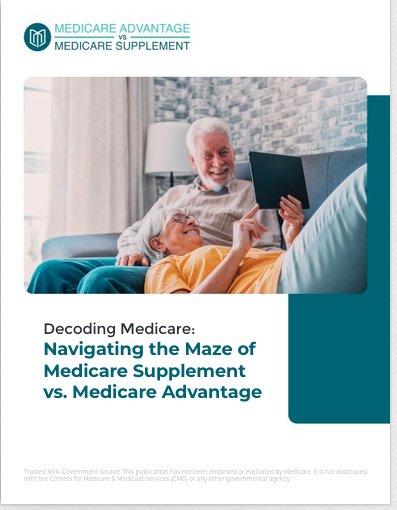Explanation of Medicare Advantage (Part C)
Introduction
Medicare Advantage, also known as Medicare Part C, represents a robust alternative to traditional Medicare plans. For USPS retirees, grasping the nuances of Medicare Advantage is crucial for making informed healthcare decisions during retirement. In this guide, we’ll delve into the intricacies of Medicare Advantage, exploring its mechanics, benefits, and pertinent considerations tailored specifically to USPS retirees.
Medicare Advantage plans, offered by private insurers approved by Medicare, provide an all-encompassing healthcare solution. These plans amalgamate the benefits of original Medicare (Parts A and B) while often incorporating supplementary coverage like prescription drugs, dental, vision, and hearing services. Understanding the features and advantages of Medicare Advantage empowers USPS retirees to navigate their healthcare options with confidence and clarity.
What is Medicare Advantage (Part C)?
At its core, Medicare Advantage (Part C) embodies a holistic approach to healthcare coverage. Unlike traditional Medicare, which comprises separate components for hospital (Part A) and medical (Part B) services, Medicare Advantage amalgamates these elements into a singular, comprehensive plan. This integration streamlines healthcare management for retirees, offering a seamless continuum of care under a unified umbrella.
One of the hallmark features of Medicare Advantage plans is their versatility. In addition to core Medicare services, these plans often extend coverage to ancillary benefits not encompassed by original Medicare. Such supplementary offerings may include prescription drug coverage, dental care, vision exams, hearing aids, and wellness programs. These additional benefits cater to the diverse needs of retirees, promoting holistic well-being beyond mere medical intervention.
Key Features of Medicare Advantage Plans
Delving deeper into the anatomy of Medicare Advantage plans reveals several distinctive features that set them apart from traditional Medicare:
- Integrated Coverage: Medicare Advantage plans serve as a one-stop destination for comprehensive healthcare coverage. By consolidating hospital and medical benefits into a single plan, retirees enjoy enhanced convenience and clarity in managing their healthcare needs.
- Additional Benefits: Beyond the core components of original Medicare, Medicare Advantage plans often incorporate supplemental benefits to enrich retirees’ healthcare experience. From expanded prescription drug coverage to preventive services and wellness initiatives, these additional perks contribute to retirees’ overall health and quality of life.
- Managed Care Options: Many Medicare Advantage plans operate under managed care models such as Health Maintenance Organizations (HMOs) or Preferred Provider Organizations (PPOs). These models typically necessitate beneficiaries to utilize a designated network of healthcare providers, fostering cost-effective care delivery and care coordination.
- Out-of-Pocket Maximums: Unlike traditional Medicare, which lacks a cap on out-of-pocket expenses, Medicare Advantage plans offer financial safeguards through annual maximum limits on beneficiaries’ out-of-pocket spending. This critical feature shields retirees from exorbitant medical costs, providing peace of mind and financial security.
Enrollment and Eligibility
Navigating the enrollment process for Medicare Advantage requires retirees to meet specific criteria:
- Enrollment in both Medicare Parts A and B is a prerequisite for Medicare Advantage eligibility.
- Retirees must reside within the geographical service area of the chosen Medicare Advantage plan.
- Exceptions aside, individuals with end-stage renal disease (ESRD) typically do not qualify for Medicare Advantage plans.
For USPS retirees contemplating a transition to Medicare Advantage, the annual enrollment period spanning from October 15 to December 7 presents an opportune window for plan selection. Additionally, special enrollment periods may be available to retirees undergoing life changes such as relocation or loss of employer-sponsored coverage.
Considerations for USPS Retirees
When evaluating Medicare Advantage plans, USPS retirees should weigh several factors to ensure optimal coverage alignment:
- Coverage Needs: Assessing individual healthcare needs lays the foundation for selecting a Medicare Advantage plan that adequately addresses retirees’ medical requirements and preferences.
- Network Restrictions: Understanding the implications of plan networks, whether HMOs or PPOs, empowers retirees to choose a plan that strikes the right balance between provider flexibility and cost-effectiveness.
- Prescription Drug Coverage: Given the prevalence of prescription medications among retirees, evaluating a plan’s formulary and coverage provisions for prescription drugs is paramount.
- Cost Analysis: Thoroughly examining premiums, deductibles, copayments, and coinsurance structures enables retirees to discern the true cost implications of each Medicare Advantage plan.
Conclusion
Medicare Advantage (Part C) stands as a compelling healthcare solution for USPS retirees seeking comprehensive coverage beyond traditional Medicare. By embracing the integrated nature and supplementary benefits of Medicare Advantage, retirees can enhance their healthcare experience while safeguarding against unexpected medical expenses. Armed with a nuanced understanding of Medicare Advantage and its tailored considerations, USPS retirees can navigate their healthcare options with confidence and clarity, ensuring a fulfilling retirement journey characterized by optimal health and well-being.
Ready to explore Medicare Advantage plans further? If you need assistance, licensed insurance agents specializing in Medicare Advantage can provide personalized guidance to help you find the right plan for your needs.
Meta Description: Discover the benefits of Medicare Advantage (Part C) for USPS retirees. Learn how these comprehensive plans offer integrated coverage, additional benefits, and financial protection, helping retirees access quality healthcare during retirement.

